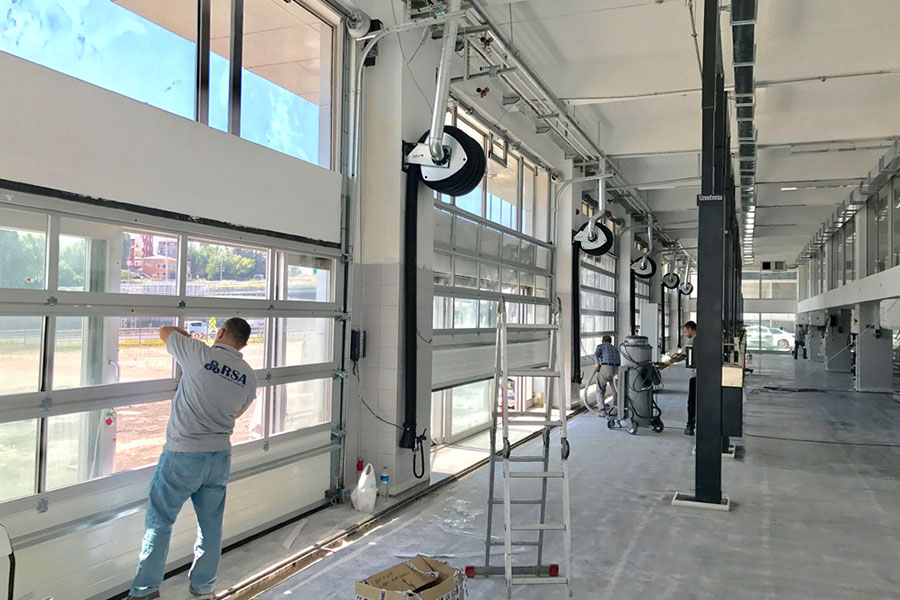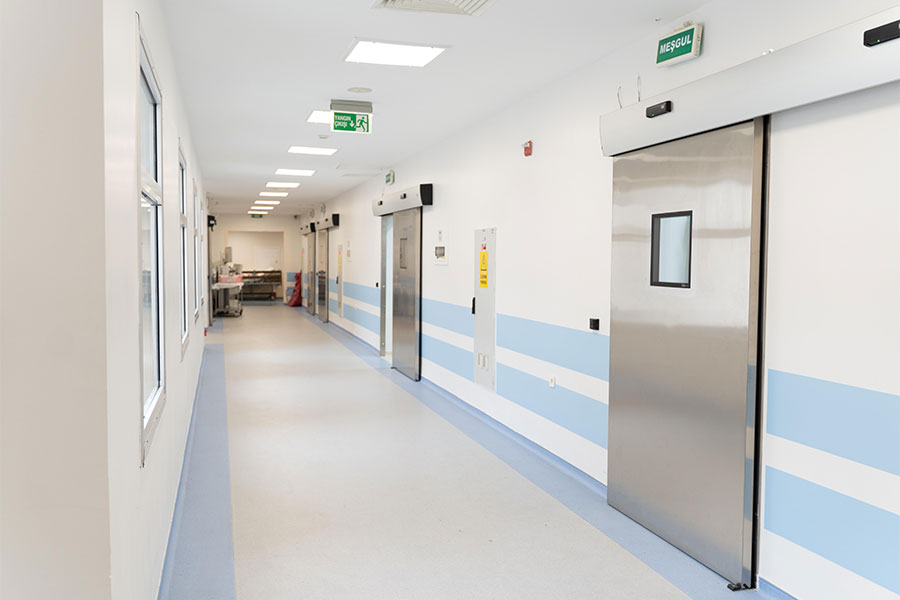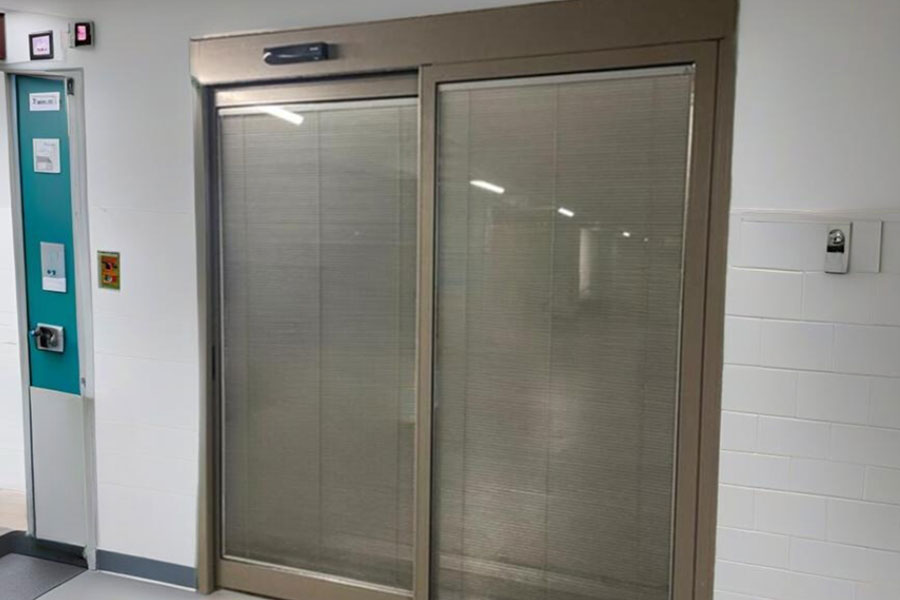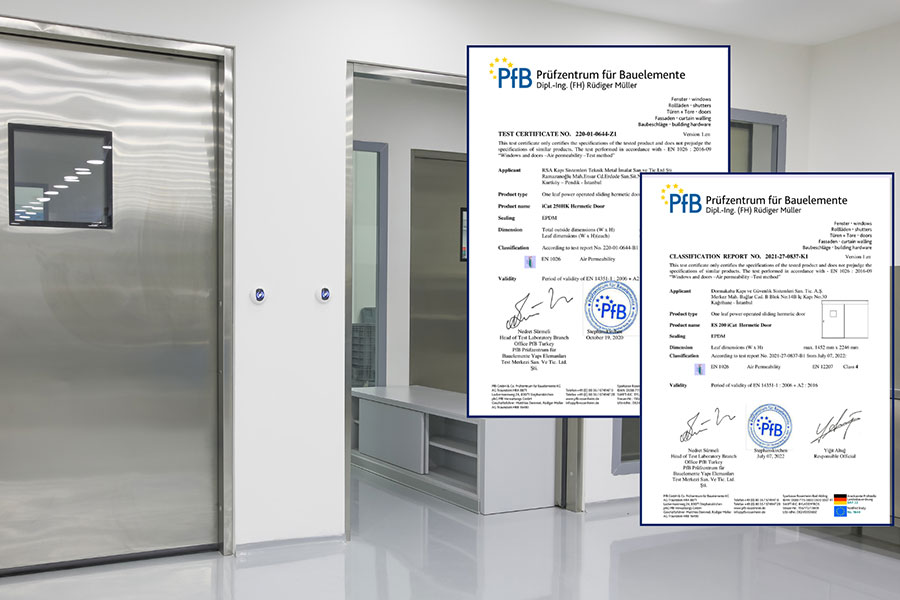
Why Air Permeability Matters in Hospital Doors?
Air permeability refers to the ability of a door to prevent air from passing through it when it is closed. In a hospital setting, controlling air flow is crucial for several reasons, including infection control, maintaining cleanroom standards, and ensuring proper ventilation in different areas of the facility.
Why Air Permeability Matters in Hospital Doors
Infection Control: Hospital environments often include areas that require strict control over air quality, such as operating rooms, isolation wards, and intensive care units. A hospital door with low air permeability helps prevent the spread of airborne contaminants and pathogens, thereby reducing the risk of cross-contamination and infections.
Maintaining Pressure Differentials: In certain hospital areas, maintaining specific air pressure differentials is essential. For example, positive pressure rooms are designed to keep contaminants out, while negative pressure rooms are used to contain harmful particles within a space. Hospital doors with low air permeability are crucial in maintaining these pressure differences, ensuring that clean air remains inside and contaminated air is kept out.
Energy Efficiency: Properly sealed hospital doors contribute to better energy efficiency by preventing the loss of conditioned air. This not only helps in maintaining a stable indoor environment but also reduces the load on the hospital’s heating, ventilation, and air conditioning (HVAC) systems, leading to lower energy costs.
Comfort and Noise Reduction: By controlling air leakage, hospital doors with low air permeability can also contribute to a quieter and more comfortable environment for patients and staff. This is particularly important in areas where a peaceful atmosphere is necessary for patient recovery.
What is the Class 4 Certificate?
The classes for EN12207 (EN1026) range from class 0 (the lowest) to class 4 (the highest). Class 4 indicates that the window or door system has been tested under pressures up to 600 Pa and had below the class limit of air permeability through the system along the panel joint and overall system area.
Conclusion
When selecting a hospital door, air permeability is an important consideration alongside weight, durability, functional efficiency, material, and hygiene. Ensuring that hospital doors have low air permeability can significantly enhance infection control, maintain critical pressure differentials, improve energy efficiency, and contribute to a quieter hospital environment.
Latest Posts
-
 The Modern Appeal of Sectional Doors15 Ocak 2025
The Modern Appeal of Sectional Doors15 Ocak 2025 -
 The Station Nightclub Fire: Importance of Breakout Door Usage10 Ocak 2025
The Station Nightclub Fire: Importance of Breakout Door Usage10 Ocak 2025 -
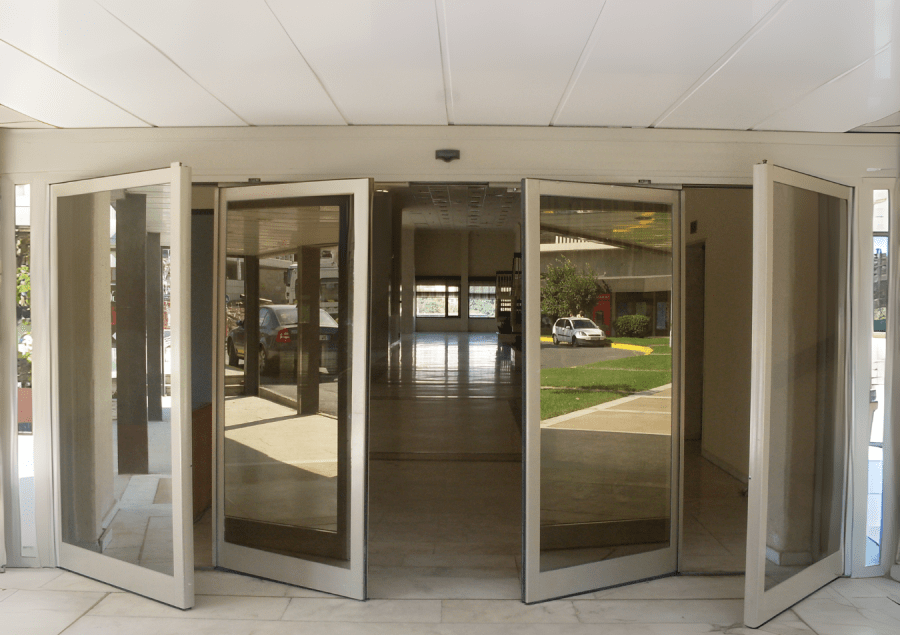 How Anti-Panic Doors Are Transforming Safety in Public Spaces?04 Ocak 2025
How Anti-Panic Doors Are Transforming Safety in Public Spaces?04 Ocak 2025 -
 Smart Buildings Need Smart Doors 🏙️22 Aralık 2024
Smart Buildings Need Smart Doors 🏙️22 Aralık 2024 -
 Unlocking Growth: How the Automatic Door Market Will Double by 203314 Aralık 2024
Unlocking Growth: How the Automatic Door Market Will Double by 203314 Aralık 2024 -
 The Impact of Automatic Doors on Customer Experience in the Retail Sector07 Ekim 2024
The Impact of Automatic Doors on Customer Experience in the Retail Sector07 Ekim 2024 -
 World Architecture Day: Next Generation in Participatory Urban Design02 Ekim 2024
World Architecture Day: Next Generation in Participatory Urban Design02 Ekim 2024 -
 World Green Building Week: Three Steps for Change24 Eylül 2024
World Green Building Week: Three Steps for Change24 Eylül 2024
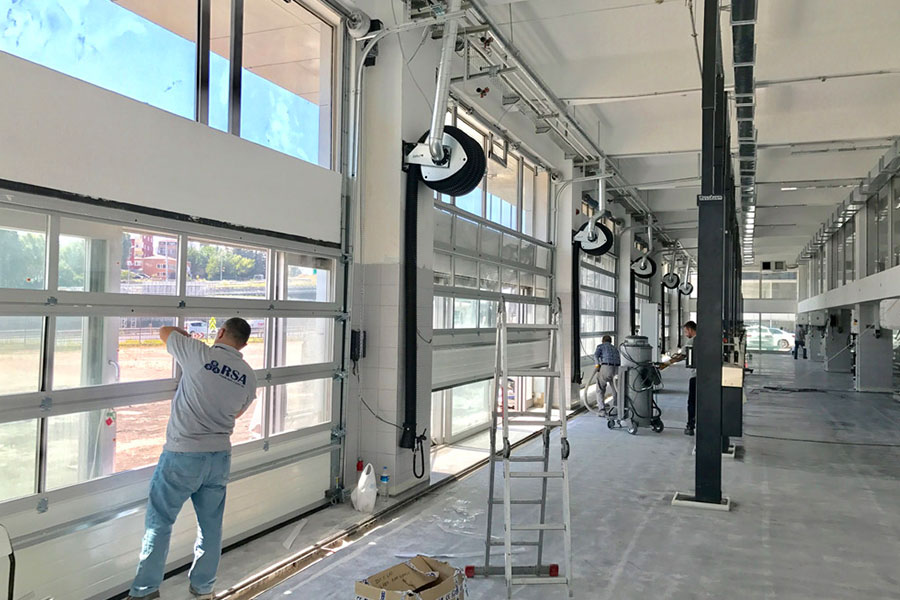
Every Entrance is Special: If Quality Products are Positioned Correctly..



